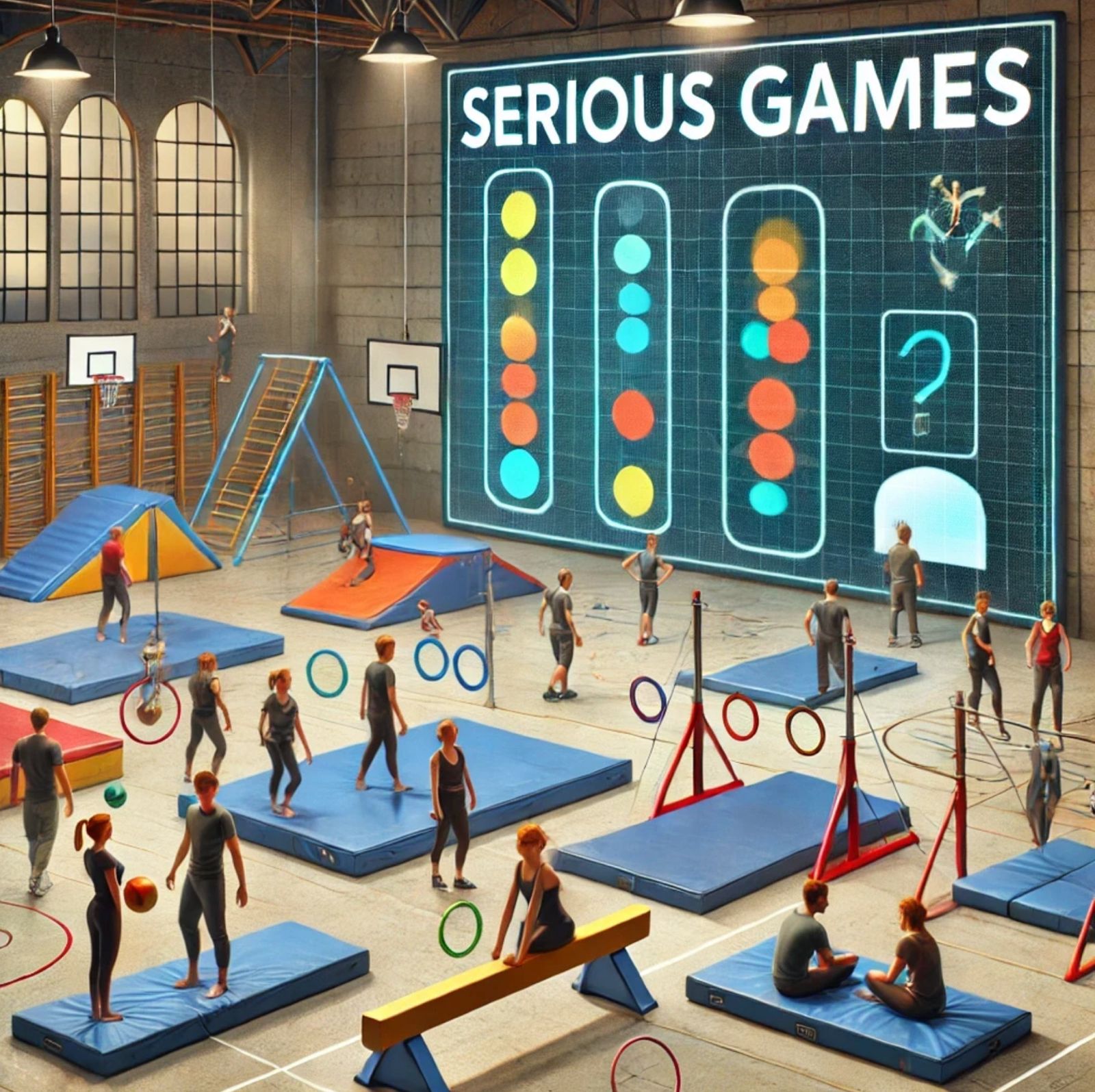Serious Game for Learning Gymnastic Elements: Preliminary development and validity assessment.
Keywords:
serious games, gymnastic, physical education, Game Experience , Questionnaire (GEQ).Abstract
Background: The use of serious games in educational curricula is a new approach to enhance learning outcomes. Specifically, serious games designed for physical education can change the way complex physical skills are taught and learned. Gymnastics, with its detailed elements and techniques, presents a unique challenge for both educators and learners.
Aim: This study aimed to: (i) investigate the potential of serious games in enhancing gymnastic elements teaching and learning in higher education, and (ii) evaluate the effectiveness of two games, G1 and G2, specifically designed for gymnastic elements.
Methods: The study involved 792 university students, with 160 selected based on criteria like active gymnastic course participation, internet access, and gaming history. The participants were divided into four groups based on gaming sequence. After informed consent, they played two serious gymnastic games with five difficulty levels and ten stages targeting fundamental gymnastic elements. The Arabic version of the Game Experience Questionnaire (GEQ) was administered after each gaming session to assess immersion, flow, competence, positive affect, negative affect, tension, and challenge.
Results: The study found significant differences in several variables using the Kruskal-Wallis H test. Flow, Competence, and Positive Affect showed significant differences across groups, with Flow showing the most pronounced difference. Negative Affect and Tension showed no significant differences. Immersion and Challenge were significantly different across groups. Within Group 1, males and females differed in Flow and Competence. A comparison between Male (G1) and Male (G2) showed significant differences in Immersion and Challenge. However, no effect difference was found in Positive Affect. Tension was found to be significant between Male (G2) and Female (G1). Flow and Challenge also varied significantly within Group 2. Females across G1 and G2 showed differences in Competence and Immersion. Overall, the study highlights the importance of understanding and addressing differences in mental health and well-being among different age groups.
Conclusion: The study suggests that serious games can effectively teach complex physical skills like gymnastics within physical education curricula, but further research is needed to understand their long-term educational impacts and optimal implementation strategies in physical education settings.

Downloads
Additional Files
Published
Issue
Section
License
Copyright (c) 2024 Mahmoud (Author)

This work is licensed under a Creative Commons Attribution-NonCommercial 4.0 International License.






